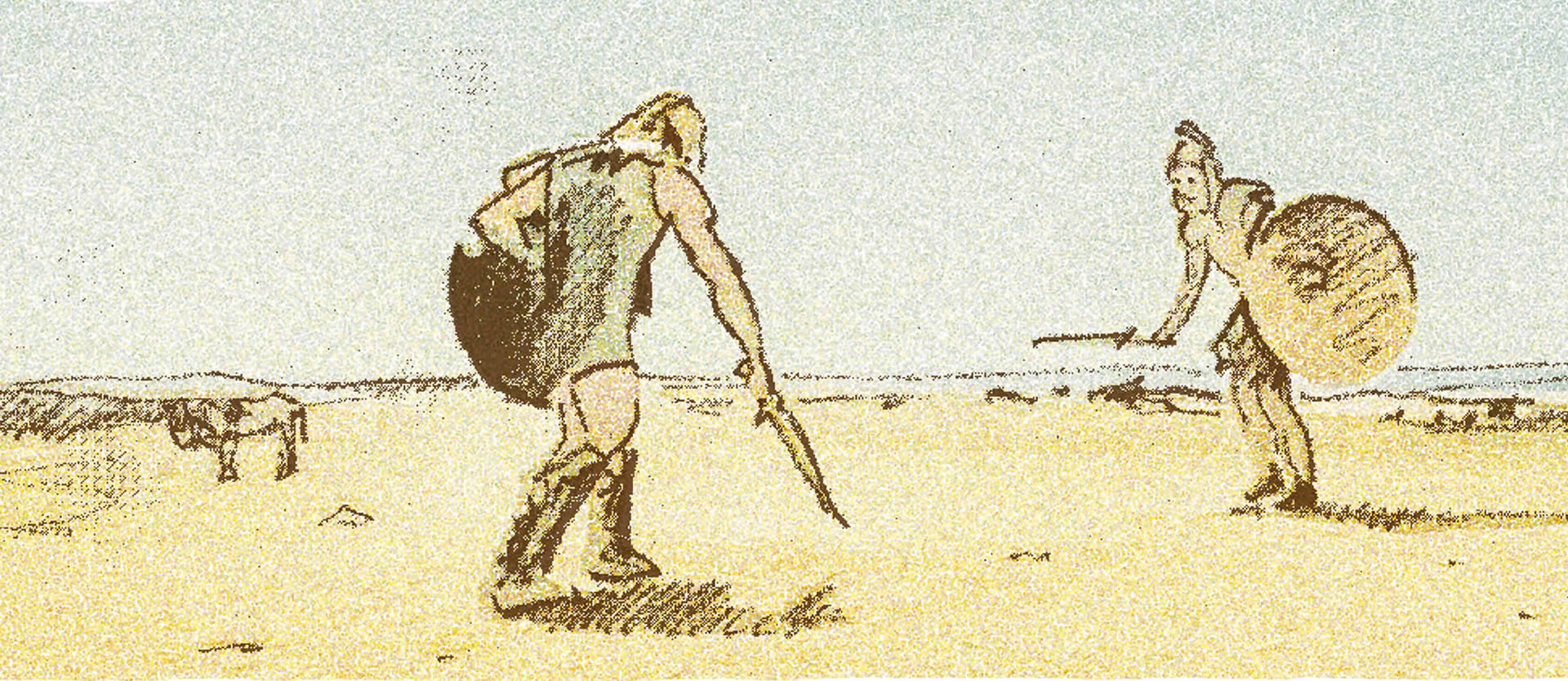Forever Troy

Eternal life is a dream that people have long shared. Even Achilles and Hector — the heroes of Homer’s Iliad and the Trojan War — envied the gods’ immortality. The reason we know that is because someone took the trouble to transfer those texts and information to the various new media that emerged over the centuries: first papyrus, then parchment, then paper. Nowadays, of course, we have digital copies of the Iliad on CD, DVD and hard drives, so this knowledge is safely stored. But for how long? “Nothing Lasts Forever” sang the English rock band Echo & the Bunnymen in 1997. This phrase oft en refers to the transience of life, but it applies equally well to the dilemma facing data and texts: the data storage media we use nowadays are not particularly robust and have a short lifespan. They really don’t last forever. And if one day the Earth ceases to exist, there will be no memories of the world we used to inhabit. Everything we have created, from epic poems to rock music and magazine columns, will be forgotten, no more than stardust fl ying through the universe. Unless Superman can come to the rescue of course!
Perhaps you can picture Superman standing in his Fortress of Solitude, holding the solution to our immortality complex in his hands: a transparent crystal. Stored in this crystal is the entire knowledge of the civilization that was lost when his home planet of Krypton was destroyed. A crystal was the perfect choice to suggest purity, incalculable value, mysticism and an aura of eternity. So it’s hardly surprising that crystals appear in so many sci-fi and non-fiction books. What may come as a surprise is that crystals really are the data storage medium of the future! Ultrashort pulsed lasers are now capable of writing huge quantities of densely packed optical data onto small crystal discs. It is estimated that these glass discs, which can withstand extreme temperatures, can store data for 13.8 billion (!) years without degrading.
So Achilles can breathe a sigh of relief: it seems we will still be able to captivate our ancestors with tales of his victory over Hector, the Trojan prince, for many centuries after the destruction of our Earth, assuming we have found a different planet to live on by then. And ultimately even Echo & the Bunnymen might have to admit that something does last forever after all. All thanks to lasers.
The White Album, Lord of the Rings or Breaking Bad — which data would
you want to save for all eternity? Let me know by email: athanassios.kaliudis@de.trumpf.com
Making the data crystal work: www.laser-community.com/en/6473













